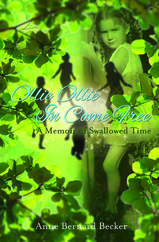
Here, Anne and I share the second part of a mutual interview about sibling loss.
Anne: Pam, I have been wondering why you chose to write a book about your bond with Rich Mullins at this particular time in your life. Obviously your love for one another had long been a privately cherished experience in your life, and it stayed that way for many years. What changed in your inner life or outer circumstances that led you to write this book?
Pam: I felt deep guilt because of not being able to speak to Richard in the last years of his life, which made it very difficult for me even to think of him until more than a decade after his death. Overall, this relationship has been the most puzzling event of my life. After writing vignettes of my memories, I had a deep healing experience which allowed me to see the relationship through different eyes. To clarify, I would say that much of my grief was healed very rapidly before I completed writing the book, not after. In turn, that shift prompted me to write the book, Singing from Silence. In fact, I'd never have written it if I hadn't had such an astonishing healing experience. I wouldn't have been able to delve as deeply as I did--it would have hurt too much.
Anne, what similarities did you find between Singing from Silence and Ollie, Ollie In Come Free? I found quite a few.
Anne: The most obvious similarity is in the love and longing we both have for a brother--if I can call Rich your brother--who is no longer available to us. Our grief was frozen and unavailable to us for many years, mired in confusion, until we could honestly face it. Our memoirs serve to bring closure to the years of numbed-out pining, to mourn consciously at last, and to honor the beauty of the bond through telling the story.
Pam: Sometimes I did see Richard as a brother, sometimes a son, sometimes a father. Anything but a boyfriend! That's another book.
On a more subtle level, perhaps, there are some similarities between your life and mine because I had twin brothers who died the morning after they were born. It was before I was born, and I don't go into it much in the book; I just state the facts, but it's an event that affected my mother profoundly. If my mother was ever carefree and nurturing, I lost that part of her along with my brothers.
Anne: Yes, this is an interesting similarity in our life stories. It is so difficult to know how responsive and nurturing our parents might have been without these losses--it is possible that they were already somewhat shut down emotionally--yet I can't help but believe their ability to parent was profoundly impacted, especially since they were not encouraged to mourn.
Pam: Tolstoy wrote, "Happy families are all alike; every unhappy family is unhappy in its own way." How do you feel about this statement? Do you think your book illustrates this point?
Anne: I wonder if Tolstoy somehow had it wrong. I don't know if unhappy families exist. Unhappy individuals within families, yes. But I think families have a way of assuring that they are "happy" as a system. I am a practitioner of Systemic Constellation work. What I see is that families develop a solid defense system that keeps them going from generation to generation without any desire to be transformed, to become "happier." No matter how unhappy the family appears, the members are sure this is the right way to be. What causes individuals to become unhappy is when they opt out of the family feeling of well-being. I don't know how this happens to others, but with me it began at a very early age. I struggled with a terrible loyalty to those siblings who had died, a sense that it was wrong to just move on, as the family ethic somehow dictated we must do, for survival's sake. Did others within the family go on to enjoy more happiness? Some did, others not, for their own reasons. But the family as a whole remained confident, cocky, even, about its happiness, its ability to be victorious over all forces that might undermine it. The family is much bigger than the individuals within it, who will find themselves isolated if they dare to question the family's happiness.
To be continued. . .
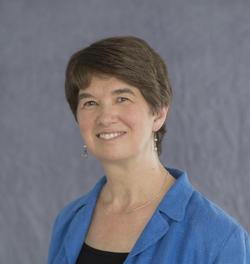
Anne Bernard Becker facilitates workshops exploring the effects of intergenerational trauma on families, and is also an ordained wedding officiant. Her recently published book, Ollie Ollie In Come Free: A Memoir of Swalllowed Time, explores the impact of her older siblings' deaths on her childhood and growth into adulthood. It is based on insights gained in psychoanalysis in the 1980's and 1990's. Besides writing, Anne loves choral singing and exploring history, psychology, and spirituality. She enjoys walks with her dog, and daily life with her husband of thirty-four years, Gerry. They have three adult children living in widely scattered places. She has worked part-time since 2001 as a learning coordinator at a private learning center. Since 1985, she and Gerry have belonged to New Jerusalem, an alternative Catholic community in Cincinnati.
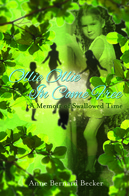
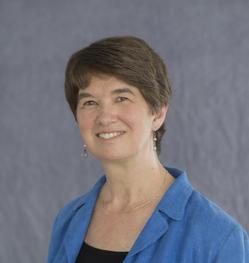
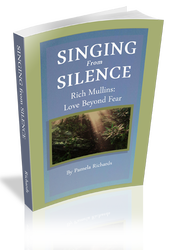
 RSS Feed
RSS Feed
